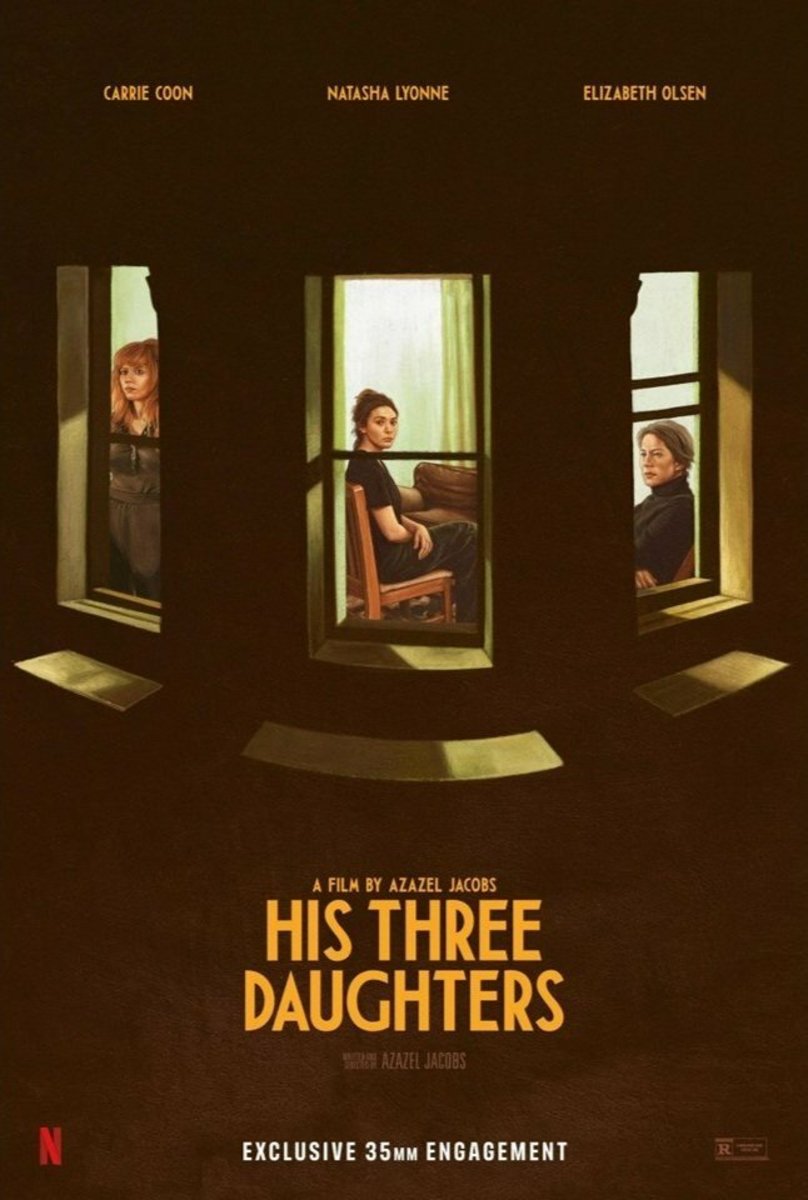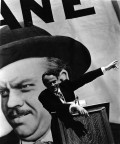Trial of the Political, Religious and Family System!
We continue in this week's "Season of Prizes" series with four films, three of which are considered the most important this year, but they did not nominate any prize even though they won many awards in European film festivals, as well as a film competing with the Academy Award for Best Film Jebni.
◄ "April's Daughter" Michel Franco (Mexico)
The beginning of "April's Daughter" gives us a picture of how the movie is going. Mystery and questions disturb us from the first scenes, when we see a woman attending breakfast, and in the background the voice of the sea and the sound of two people having sex. A teenager opens the door, leaves the room, naked, satisfied and pregnant. Caught by a young man who eats an egg from the kitchen and goes. A few words to pronounce and some gloomy gestures. This strange calm is only a sign of family disintegration and the strange relationship that binds family members, especially the mother's relationship with her daughter. The absence of the mother and then her sudden arrival in conjunction with the birth of the child, will stir the complex family tissue. The scenario follows the narration itself, with the addition of a larger group of characters. However, four individuals will share this story. The core of the story is April's mother (Emma Suarez) a character with whom she carries complex emotional problems, leading her to abnormal and dysfunctional behavior. In a few years and a few films, Mexican director Michel Franco has accomplished what it takes years for other directors to achieve.
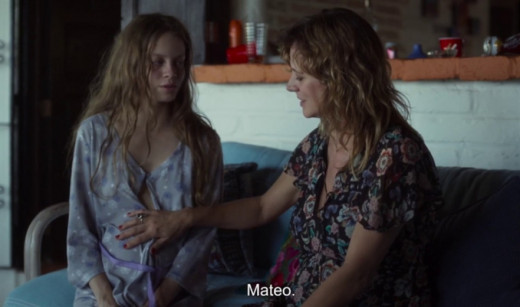
Through what he has presented so far, he was able to establish an easily recognizable narrative style. Through his skill in raising a charged atmosphere, he presents in his films two or three pieces of information, leaving a full series of lines and possible events and the psychology of his characters tell the story. In "Daughter of April" (2017), who won the jury prize in the "What Look" competition during the "Cannes Film Festival", Franco did not depart from his style. He presented another exciting story, a complex drama about a broken family, crowning Spanish actress Emma Suarez as a queen. Through the psychology of his characters, the film itself develops, through the characters and their slow development, and a large part of it is but a long introduction to surprising and unexpected results.
The strength of the film is that Franco is neutral in presenting the motivations of his characters. He does not wish to impose judgments on her behavior. Thus, by way of narration and the collection of ellipse pieces that are slowly unfolding, the viewer cannot impose its rulings either, but rather we sit and watch how everything develops and how it ends. Do not disappoint the characters that we think their actions will surpass reason at some point. She knows how to bother us with her actions, and we always wait for what she can do more or how the scale of destruction and dislocation can be wider. Franco's narrative style introduces a gradual evolution of the changes in the emotions of the four actors: After the mother settles in the house, she begins to display her growing follies, and the emergence of her madness increases tension and risks, especially for the daughter who has just reached motherhood. The mother’s personality deserves study, as if she flogged herself, as if her time had passed, and the young woman she was no longer. And because it cannot revive the past, it brings it to the present with all the consequences of what might happen.
"April's Daughter" is a complex movie, which raises the middle finger in the face of the concept of motherhood, full of moral problems and questions about the meaning of family, it was filmed with a relatively calm camera, and as rigid as the characters, allowing the excitement to sneak quietly. Like Franco's previous films, the characters are unclear, there is no clear and clear explanation for her actions, we neglect her actions, deceive us with her ideas, and act contrary to what is expected of her. You jump from one behavior to another and put the director's analytical responsibility on the viewer.
◄ "Bacurau" Clipper Filho and Juliano Dornells (Brazil)
The socio-political drama in "Bacurau", which begins as an intimate and unclear view of a cohesive community in a village located in the Brazilian countryside, is gradually turning into excitement when the villagers gather to defend it against the "invaders". The Brazilian director's film (Prize of the 2019 Cannes Festival Jury) presented with innovative care and creative methods, is characterized by a slow pace in providing information, allowing the viewer to think about everything. In this brilliantly executed way, the gradual line is accompanied by clear criticisms of the system, and metaphors indicate the hidden power of ordinary people and their history.
"Bacurau" is the name of a fictional village in Brazil in the near future, but there is nothing similar to the future or even the present. We soon know that the village is erased from all geographical maps, its cell phones do not work, and it is surrounded by unusual tourists.
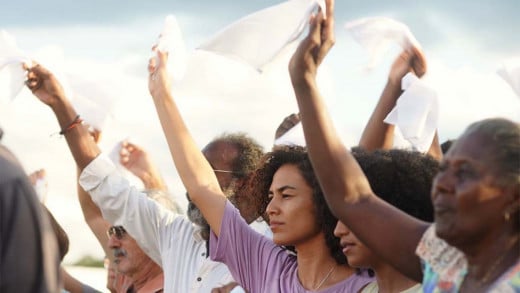
These are wealthy American investors, who organize a surveillance and safari trip led by a German, but their aim is not to hunt animals but rather the villagers with the help of the government. By this, Bakuru residents are organizing a defense campaign against foreign fishermen. The fantasy film mixes with harsh reality, and does it in a bloody manner that is both shocking and entertaining. The story revolves many times around its axis, turning into an enjoyable mess. Over a period of two hours, the directors present several types of films in one film: social, comedian, and politician, science fiction and documentary mixed with anthropology, terrifying cycadelle, excitement and western.
The movie is constantly changing, changing perspectives one by one and upset expectations. It is up to the viewer to slowly continue the narration. Nothing is certain, and everything is open to inevitable surprises. The directors do not seek to please the viewer, but rather let their film move in a strange way, leaving the audience with acceptance or aversion. The movie seeks to preserve the story and surprises, so there is not one hero, but the entire village, about 20 people take possession of one scene, and they play specific roles to make room for others in the next scene. The film ends without remembering the names of most of this population, but it does not matter. The main thing is their job in light of a delicate socio-political situation.
The directors choose this story for a specific purpose: instead of a pessimistic film about Brazil, they offer fictional action imbued with reality cinema with sharp criticism of Brazilian politics that places wealth, profits and investment at the expense of social security, living space and even human bodies.
◄ "By the Grace of God" François Ozone (Brazil)
During the screening of the film at the "Berlin Festival" 2019, where he won the Silver Bear Award, French director Francois Ozone admitted his hope that his new film will put pressure on the French judiciary. But he was skeptical about the rapid result of this pressure. "By the Grace of God," a true story that occurred in France between 1986 and 1991. It is a condemnation of rape and sexual harassment crimes in the Catholic Church in France. The main target is Father Bernard Brianna, who sexually assaulted 80 minors during this period in Lyon, in addition to Cardinal Philippe Barbaran who was always aware of these issues and left the father for years in a library and in direct contact with children.
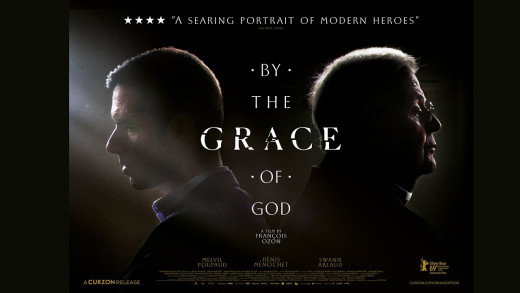
The film tells the true story of Alexander (Melville Bobo) who decided to break his silence after thirty years, and decided to send a message to Cardinal Barbaran (François Mathuret) responsible for the diocese of Lyon, to assure him of his religiosity first, passing his story as a child in the scout to the father's assault Brianna it. The Church sympathized with him, but did not take any action against the father even after his confession, and he left his position. Then Alexander decided to go to the police and search for other victims. For the majority of them they form an association and after that the trials that ended in early 2019 (after the film's screening) begin.
The French director focuses on the victims who have suffered for years, in a film that could serve as a family drama about the psychological effects of the victims and their struggle for justice, even after many years. Based on the real events, Ozone condemns the church with a sober movie as a dramatic document, in which it presents many of the horrific stories that the clergy practiced on the children without concealing the facts, but rather by hiding some of the victims' data out of respect for their privacy.
With pragmatism, Ozone condemned the ecclesiastical hierarchy capable of concealing facts and crimes, and aimed at achieving social justice. But the question remains: Can cinema be a force contributing to the fight against these crimes? The answer is still both. The tape was criticized by the church before and during the presentation, and more importantly, even this cinematic testimony was not sufficient for the French judiciary to establish justice, as the result of the trials was reduced.
◄ The “Corpus Christi” Jan Komasa (Poland)
In his third feature film that took part in the last "Venice Film Festival" and Oscar nominee for Best Foreign Film, Polish director Jan Komasa presents a strange story that has already happened. A former convict became a priest in the diocese, and this was not discovered until after six months in which the "priest" showed dedication to his mission and greater faith than the previous true priest. Danny Daniel (Bartoss Pelinia) is a 20 year old young man, who found himself in a spiritual transition while serving his sentence in a detention center for a murder. Daniel wishes to become a priest, but this is unlikely because of his criminal record. Upon leaving the center, he was appointed to work in a carpentry workshop in a small town. But upon his arrival, he wore a priest's clothes, and the error was completed when the residents believed he was the new priest.
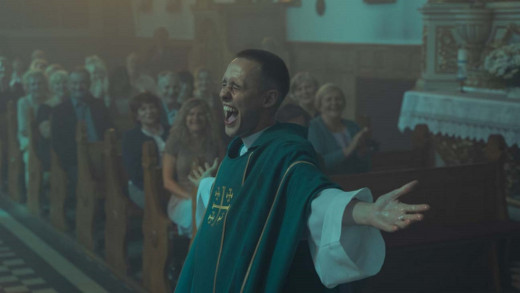
The appearance of this charismatic young preacher becomes an opportunity for a society shaken by a tragedy that took place shortly before to begin healing. Despite the method of proselytizing that sparked great controversy among the population, the false priest's appeal began to inspire everyone with the passage of time. The cinematic language in the "Corpus Christi" is cruel as it is realistic. This of course determines the tone of this story. Comasa presents Daniel as a young man who willingly took a chance, and changed his life forever. As it begins to preach, the director gives us an impressive reflection and depth and takes us far and deep. Confused but self-confident, Daniel begins to hear the confessions of the villagers. From there we hear the secrets and disasters that will be an important part of the movie.
What Daniel discovers in society, his problems, and his solutions, paves the way for us to develop questions that give the film the true material of narration. There is no confrontation between good and bad (although this happens within several personalities) and there is no excitement or anticipation pending the exposition of Daniel. The primary focus is only on the community context and problems of the village's residents. Here the questions begin with the conquest of our thought: questions about hypocrisy, can a criminal and a liar be a Christian more than a traditional homemaker? For forgiveness, guilt and sins, who deserves forgiveness? We will also have questions about the basis of sin. Will Daniel's present save his past?
The traffic accident, which causes crisis, tensions and hostility in the village, forms the backbone of the story. This disaster, along with the religious catastrophe that Daniel incarnates, are the most important elements of the film. Do we all deserve forgiveness? The personality of the new priest is strange to the "religious" society. He presents himself as a non-observant priest, drinking beer and not rejecting the pleasures of the body. He performs speeches on rap, and has tattoos on his body. He lost his inner torment and knows life perfectly because he lived it. By this, the new priest restored the bridge between religion and believers.
The Polish director presents a film not against religion but against dogmatism, against a rigid religion. Business is "good" because it does not always lead to a good end. It made us tragically mess with the truth of religions, extremism, and intransigence. We left with Daniel and the residents of the village in a circle, closed them, and left us on the path to our unfinished questions.
Related Articles
- Online Dating: There's No Place to Love Here
- Santa Claus Came After All
Apart from the difficult circumstances in the country, everyone this season is on a date with a wide fan of festive-inspired films that are suitable for the whole family, perhaps introducing some joy and pleasure to the hearts. Here, we review the hi - Abdurrahman Qattani... a Life "in the Shadows of Zinko"!
- "We" and "They"?
Some of the discussion on the country's crisis stems from the use of the term "we". They use this to indicate in an adjective that they speak in the name of the Lebanese in general. They say we are Lebanese. They are trying to impose their approach o
This content is accurate and true to the best of the author’s knowledge and is not meant to substitute for formal and individualized advice from a qualified professional.
© 2020 Hafiz Muhammad Adnan



